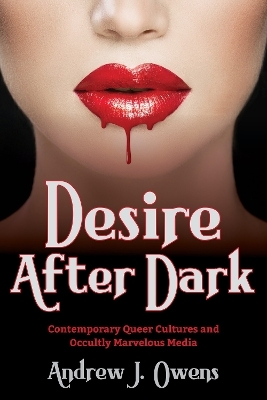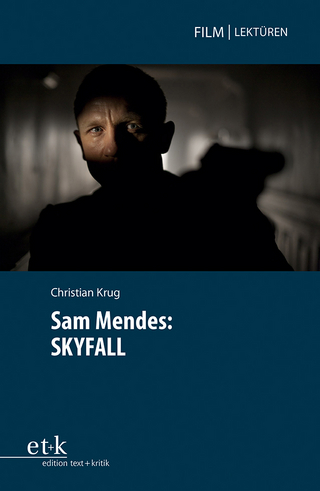
Desire After Dark
Contemporary Queer Cultures and Occultly Marvelous Media
Seiten
2021
Indiana University Press (Verlag)
978-0-253-05382-4 (ISBN)
Indiana University Press (Verlag)
978-0-253-05382-4 (ISBN)
Since the 1960s, the occult in film and television has responded to and reflected society's crises surrounding gender and sexuality.
In Desire After Dark, Andrew J. Owens explores media where figures such as vampires and witches make use of their supernatural knowledge in order to queer what otherwise appears to be a normative world. Beginning with the global sexual revolutions of the '60s and moving decade by decade through "Euro-sleaze" cinema and theatrical hardcore pornography, the HIV/AIDS crisis, the popularity of New Age religions and witchcraft, and finally the increasingly explicit sexualization of American cable television, Owens contends that occult media has risen to prominence during the past 60 years as a way of exposing and working through cultural crises about queerness. Through the use of historiography and textual analyses of media from Bewitched to The Hunger, Owens reveals that the various players in occult media have always been well aware that non-normative sexuality constitutes the heart of horror's enduring appeal.
By investigating vampirism, witchcraft, and other manifestations of the supernatural in media, Desire After Dark confirms how the queer has been integral to the evolution of the horror genre and its persistent popularity as both a subcultural and mainstream media form.
In Desire After Dark, Andrew J. Owens explores media where figures such as vampires and witches make use of their supernatural knowledge in order to queer what otherwise appears to be a normative world. Beginning with the global sexual revolutions of the '60s and moving decade by decade through "Euro-sleaze" cinema and theatrical hardcore pornography, the HIV/AIDS crisis, the popularity of New Age religions and witchcraft, and finally the increasingly explicit sexualization of American cable television, Owens contends that occult media has risen to prominence during the past 60 years as a way of exposing and working through cultural crises about queerness. Through the use of historiography and textual analyses of media from Bewitched to The Hunger, Owens reveals that the various players in occult media have always been well aware that non-normative sexuality constitutes the heart of horror's enduring appeal.
By investigating vampirism, witchcraft, and other manifestations of the supernatural in media, Desire After Dark confirms how the queer has been integral to the evolution of the horror genre and its persistent popularity as both a subcultural and mainstream media form.
Andrew J. Owens is Lecturer in the Department of Cinematic Arts at the University of Iowa.
Acknowledgments
Introduction: Blood, Sulfur, Sex, Magick
1. Aquarian Alternatives: Mid-century Media and the Quest for Occultly Queer Histories
2. Le sexe qui parle du surnaturel: Supernatural Sexualities and Satanic Subcultures in the 1970s
3. The Blood is the Life/Death: Queer Contagion and Viral Vampirism in the Age(s) of HIV/AIDS
4. Now is the time, now is the hour, ours is the magick, ours is the power: Casting as Coming Out in Millennial Media
5. Hold Me, Thrill Me, Kiss Me, Kill Me: The Ambivalent Queer of Occult Cable TV
Epilogue
Index
| Erscheinungsdatum | 15.01.2021 |
|---|---|
| Zusatzinfo | 6 Illustrations, black and white |
| Verlagsort | Bloomington, IN |
| Sprache | englisch |
| Maße | 152 x 229 mm |
| Themenwelt | Kunst / Musik / Theater ► Film / TV |
| Sozialwissenschaften ► Kommunikation / Medien ► Medienwissenschaft | |
| Sozialwissenschaften ► Soziologie ► Gender Studies | |
| ISBN-10 | 0-253-05382-X / 025305382X |
| ISBN-13 | 978-0-253-05382-4 / 9780253053824 |
| Zustand | Neuware |
| Haben Sie eine Frage zum Produkt? |
Mehr entdecken
aus dem Bereich
aus dem Bereich
wie KI und virtuelle Welten von uns Besitz ergreifen – und die …
Buch | Hardcover (2023)
Heyne (Verlag)
CHF 29,90
Eine Einführung
Buch | Softcover (2022)
Springer VS (Verlag)
CHF 46,15


